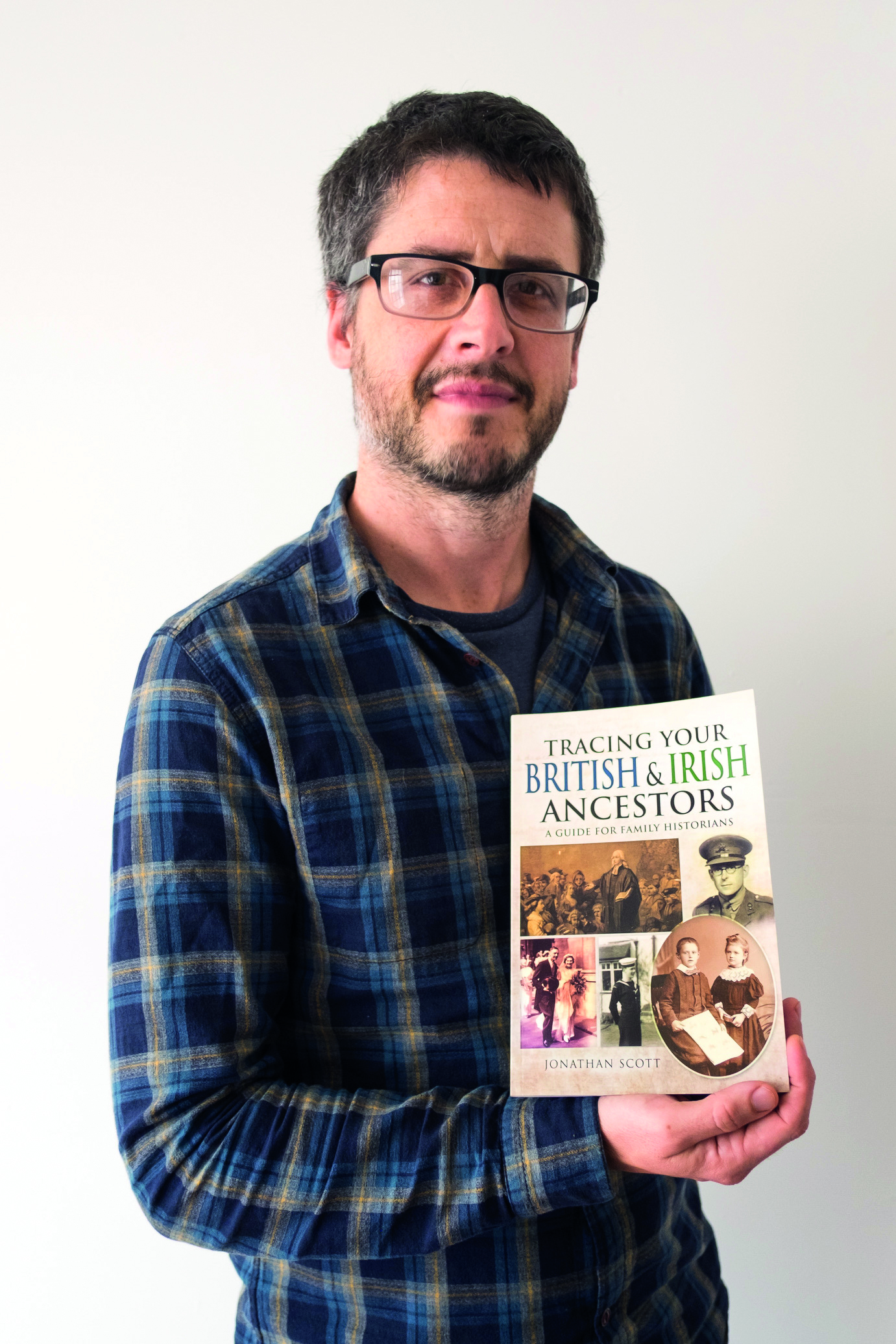Tracing your Caribbean ancestry can be tricky because surviving records are patchy - but these websites offer a fantastic place to start and there are more and more Caribbean ancestry records going online all the time so why not give it a go!
You may also like:
- Check out our guide to Jamaican family history records
- See our new guide to tracing Barbados ancestors
- 100 cool British last names: From Anguish to Wildblood
- How to start a family tree
1. FamilySearch.org

If you wish to trace your Caribbean ancestry, then FamilySearch should be your first port of call. The link above takes you to pages on the different regions and islands. For example ‘Grenada > Online Genealogy Records’ leads to external databases on MyHeritage and Ancestry, as well as free images of the St George Register of baptisms, marriages and burials (1765–1785) on the British Library’s website.
On FamilySearch there are Jamaican civil registration records, including more than 3.8 million life events (1880–1999), plus Caribbean-wide collections such as deaths and burials (1790–1906). You will find lots of record scans too, with more and more of them being indexed and made freely available online. There is also a growing collection of records for Barbados including civil registration records (1900-1931).
2. Caribbean Family History
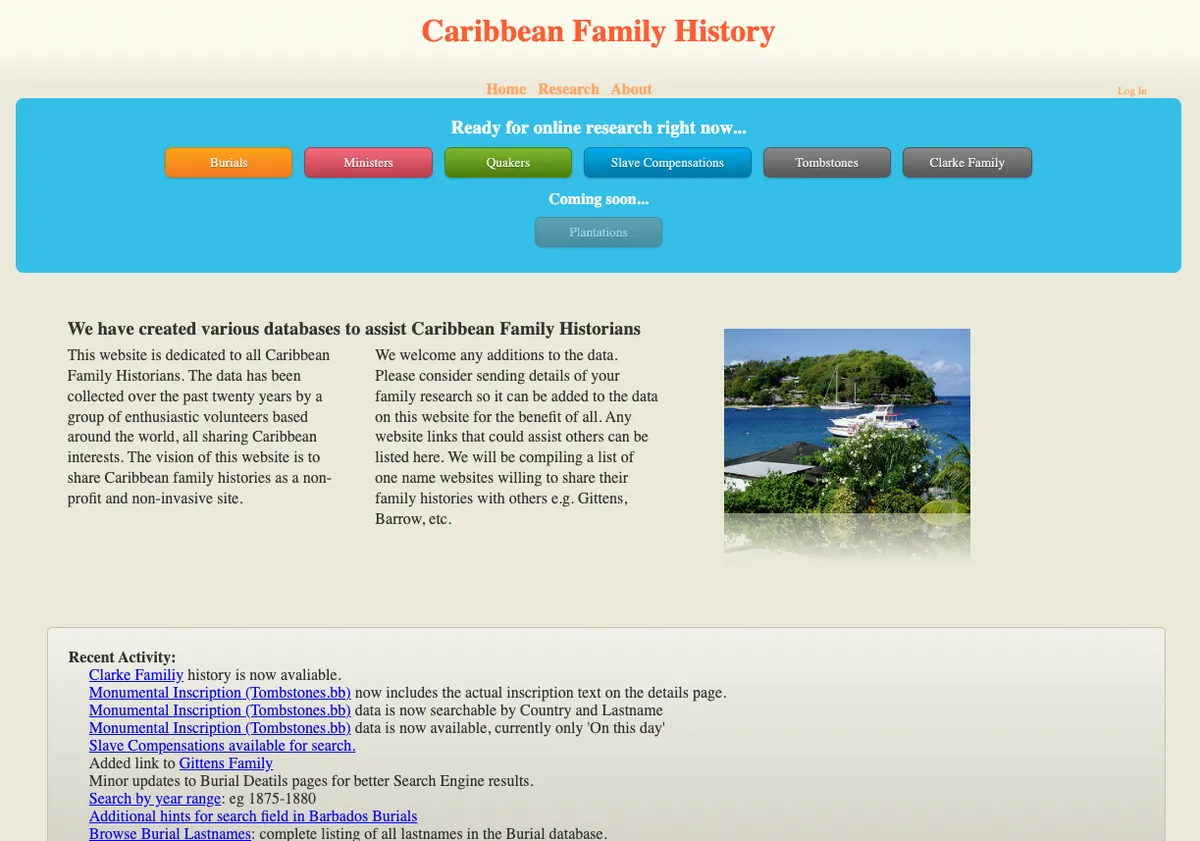
This Caribbean family history site offers a useful list of libraries, archives, museums and other institutions from across the region, which may offer up some online gems. The Department of Archives at the Commonwealth of The Bahamas, for example, has an index to wills from 1703 to 1968.
The site also offers some databases including Barbados burials and Quakers in Barbados. You can also find out more about the Clarke family and ministers in Barbados.
3. The Jamaica Gleaner
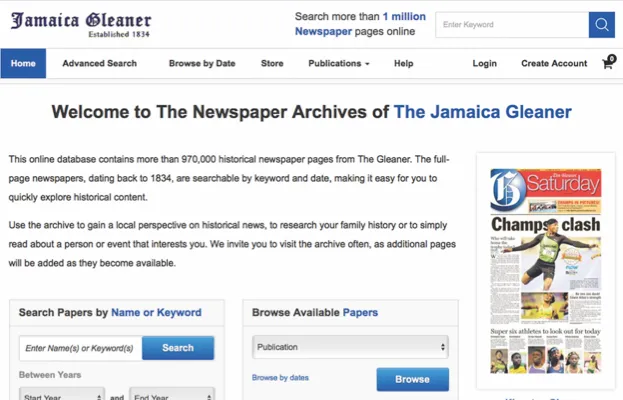
The Jamaica Gleaner, the leading Jamaican newspaper, was first published in 1834, and you can access a pretty complete digital archive online. The database contains more than 970,000 old newspaper pages, searchable by keyword or date, leading to PDF copies you can scroll through or zoom into via the browser, and containing obituaries, birth records, marriage notices and more. A six-month membership costs $49.95, with one-day, one-week and one-month subscriptions also available. The wider archive site NewspaperArchive has more than 9,800 titles in its global roster.
4. Ancestry.co.uk
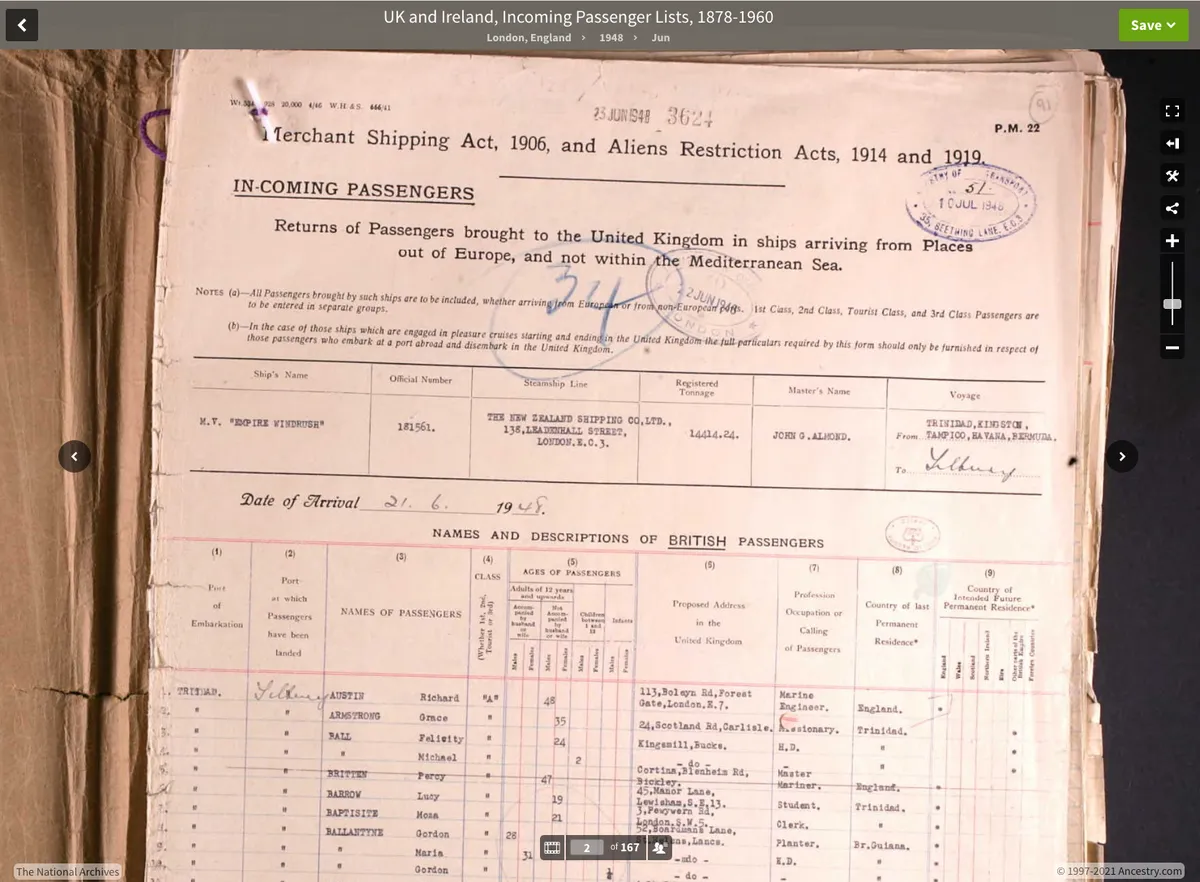
This subscription website includes The National Archives collection of incoming passenger lists, 1878-1960 as well as an important collection of slave registers in its collection Former British Colonial Dependences, Slave Registers, 1813-1834. The slave registers on Ancestry are free to view and do not require a subscription. However, keep in mind that, as shown in Jessica Ennis-Hill's episode of Who Do You Think You Are? many enslaved people changed their names after the abolition of slavery so it can not always be possible to match people to names in this register. You can read more about them in our guide to Jamaican records. The site also has a database of English settlers in Barbados, 1637-1800.
5. Centre for the Study of the Legacies of British Slavery
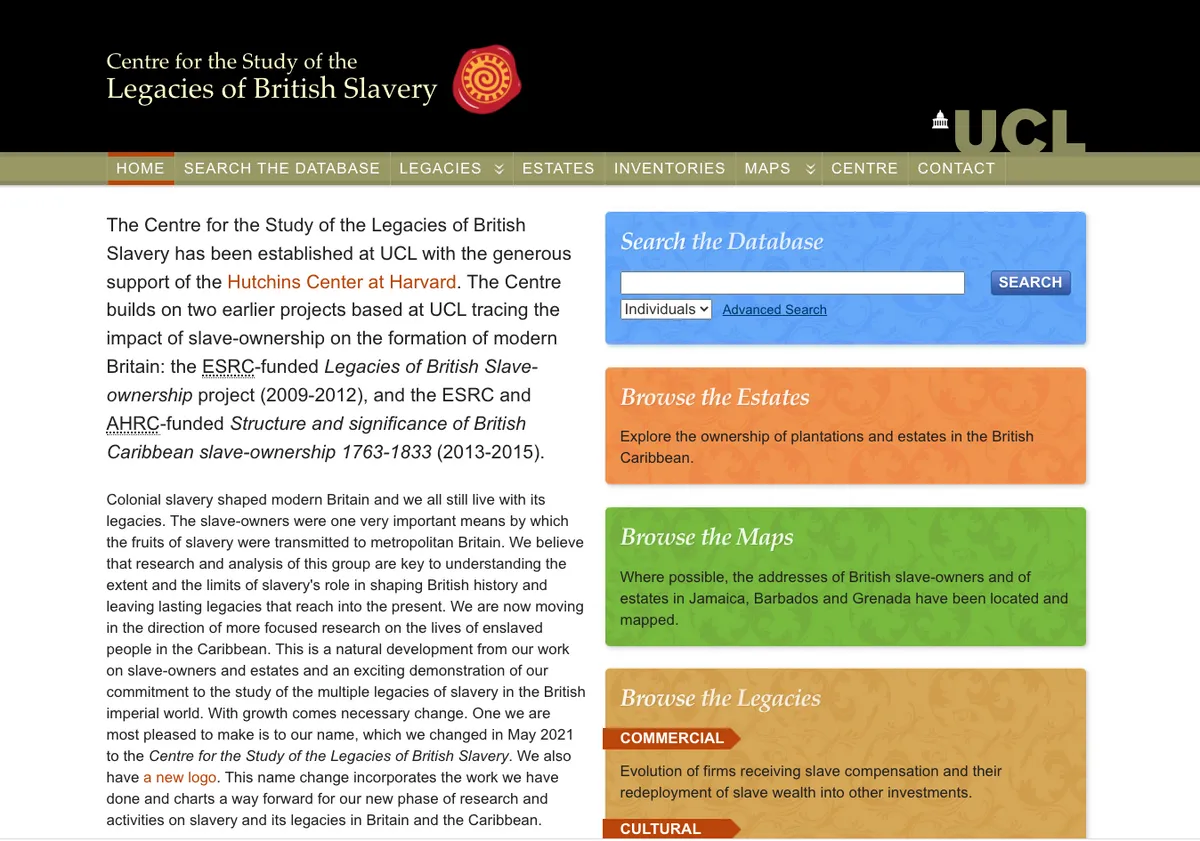
This website from the Centre for the Study of the Legacies of British Slavery at University College London includes a database of slave holders who claimed compensation from the British government when the owning of slaves was made illegal in 1834. The site includes useful maps of Jamaica, Barbados and Grenada and can be used in conjunction with the slave registers on Ancestry to build up a picture of slave ownership in the Caribbean.
6. The Caribbean in 1914
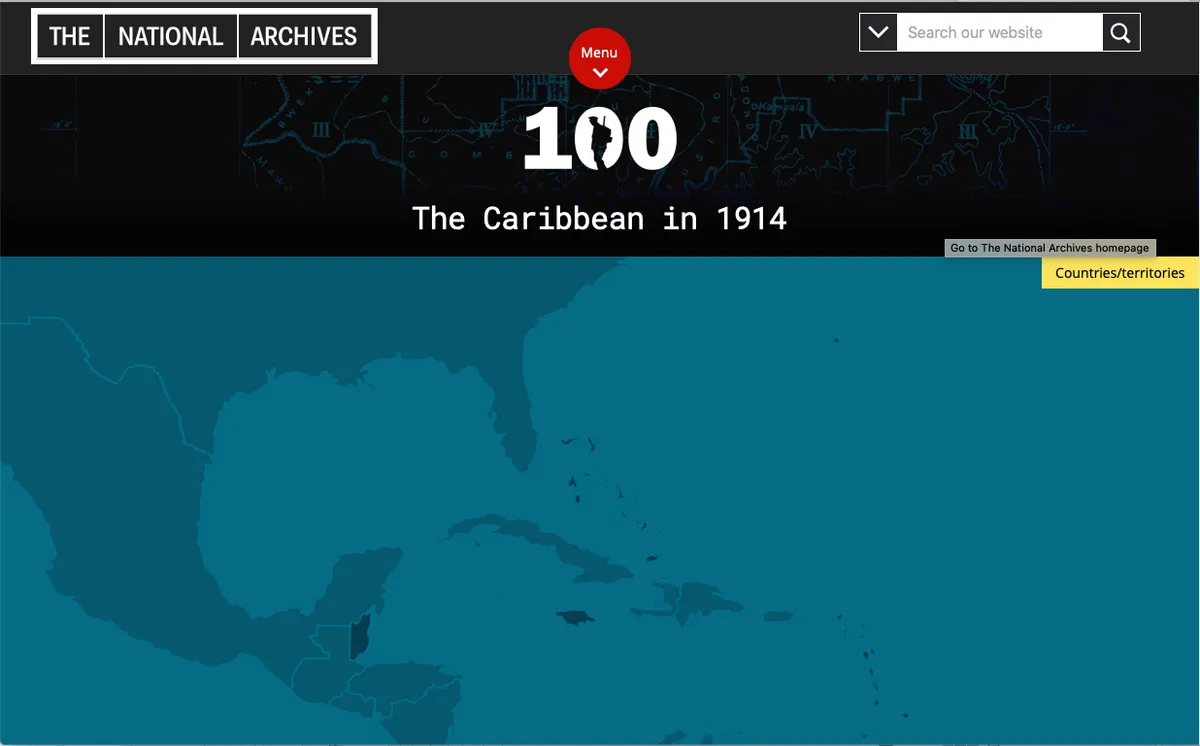
This section of The National Archives' First World War centenary site focuses on the Caribbean in 1914. You can simply scroll down or click on the map. Select the Bahamas, for instance, and you’re given a short overview of the islands’ population in 1914, along with sections on the home front, Royal Navy defence, the Bahamas contingent and others – all the while linking back to relevant documentary material held at Kew.
The National Archives is also the place to confirm passengers aboard HMT Empire Windrush, which arrived at Tilbury Docks carrying 492 workers from the Caribbean in June 1948 (BT26/237), or the vessels that followed – such as SS Auriga, which docked with 1,100 souls on board. Ancestry also has passenger lists for this period including the Windrush.
7. Caribbean Family History Group
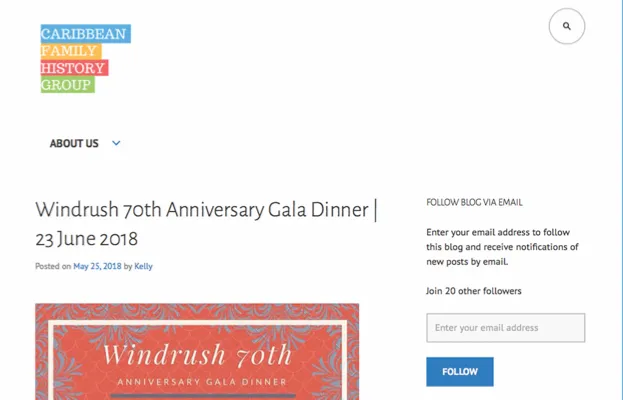
The friendly and helpful Caribbean Family History Group has two main branches, with most of the activity based around Solihull and Birmingham. The website has lots of useful information and links, and the group meets regularly at Solihull’s Core Library. Because Solihull is a FamilySearch Affiliate Library, all of the site’s digital images of Caribbean records are available to view here.
8. Jamaican Family Search
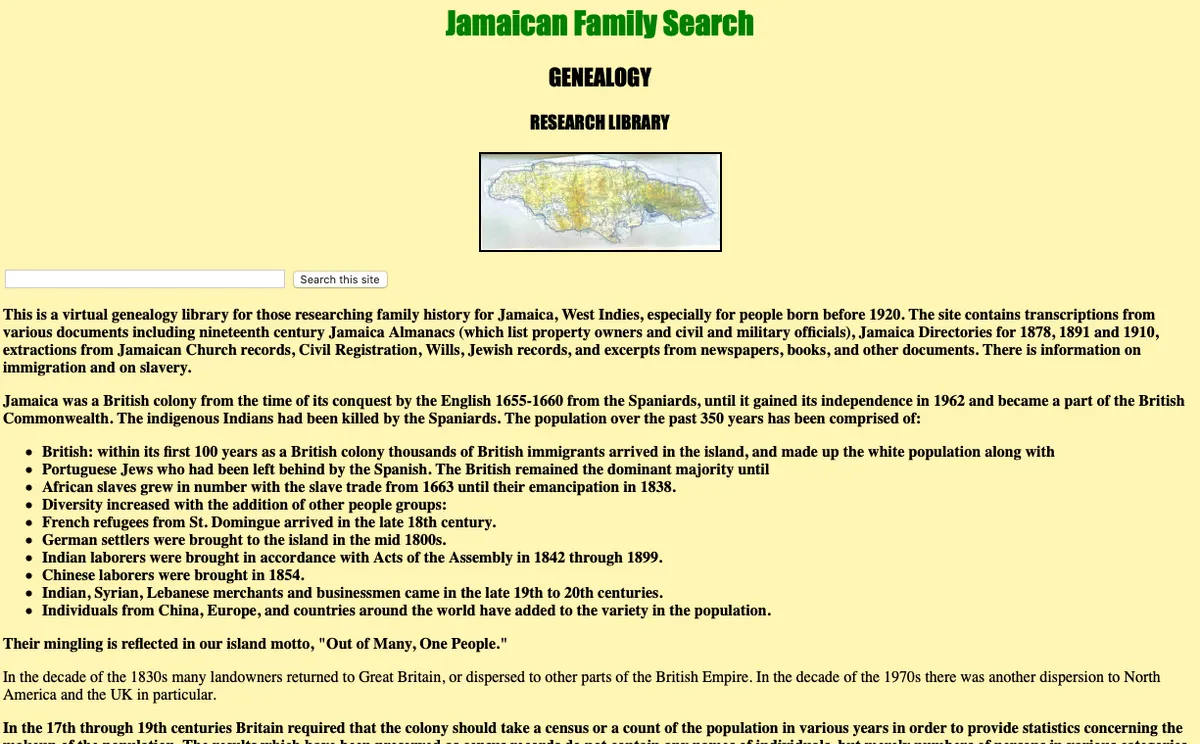
Chosen by Paul Crooks, author of A Tree Without Roots: the Guide to Tracing British, African and Asian Caribbean Ancestry
"Jamaican Family Search is an online library for finding historical records of those who lived in Jamaica from the 17th century to 1920 – mainly white families and their offspring. The website has transcriptions from various documents including 19th century Jamaican almanacs (which list property owners plus civil and military officials), extracts from Jamaican church records, civil registration records, wills, Jewish records, and excerpts from directories, newspapers, books and other documents.
"The website is especially useful for anyone interested in developing narratives around the legacy of British slave ownership – the lists of property owners and pens, sugar estates and plantations will be of particular interest if you are researching ancestors who were enslaved in Jamaica. Links to various documents related to slavery in the country are grouped on a page called ‘Slaves and Slavery in Jamaica’.
“If your focus is researching ‘the French connection’, then there’s material relating to refugees fleeing the 1791–1804 revolution in Haiti (then known as Saint-Domingue – a French colony).
"This website was created by an individual, not a corporation. So the database is not complete by any stretch of the imagination. However, it is great if you are at an advanced stage of genealogical research, or are simply looking for a bit of information that might stimulate your curiosity further."
9. The British Newspaper Archive
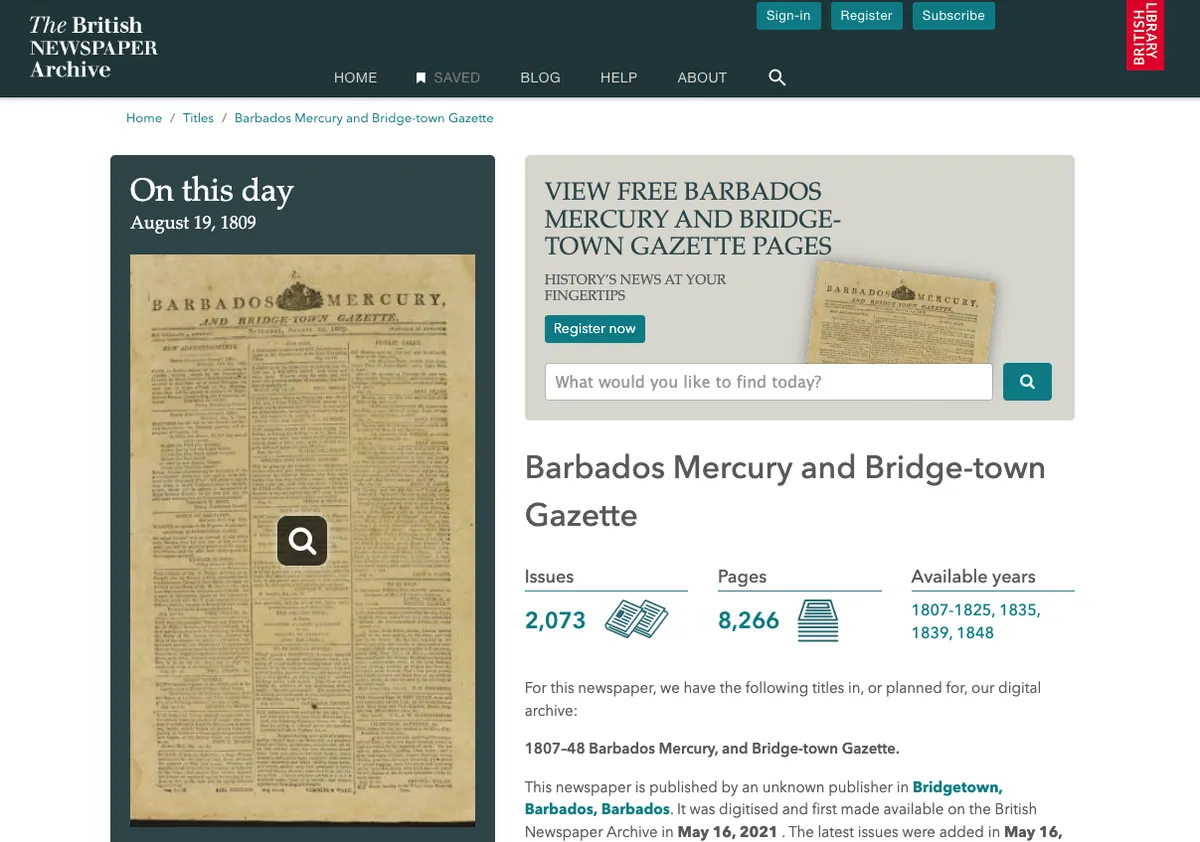
This vast searchable depository of newspapers from the British Library collection also includes a growing number of titles from the Caribbean such as the recently added Trinidad Chronicle, 1864-1885. Other titles include the Barbados Mercury (various years between 1783-1848); The Barbadian, 1822-1861; Barbados Herald, 1879-196; The Colonial Standard and Jamaican Dispatch, 1864-1895; The Morning Journal (Kingston, various years 1838-1875) and many more. Other Caribbean newspapers included in this collection cover Antigua, Belize, Dominica, Saint Kitts, Saint Lucia and Trinidad and Tobago. All newspapers in the British Newspaper Archive collection are also available to Pro subscribers to Findmypast, giving you access to millions of other British and worldwide records for £179.99 a year. Subscription to the British Newspaper Archive currently costs £86.04 for a year.
10. The Grenada Genealogical and Historical Society Online

Grenada is a small island in the Caribbean but as the Noel Clarke Who Do You Think You Are? episode indicated, a lot of Grenadians migrated to other islands as there were better job opportunities abroad. This Facebook Group, with over 8,000 members supports people interested in researching their Grenadian family history. It's a busy site with many members based in Grenada with immediate access to local sources as well as researchers and historians (including John Angus Martin who appeared as an expert on Naomie Harris's episode of Who Do You Think You Are?).
